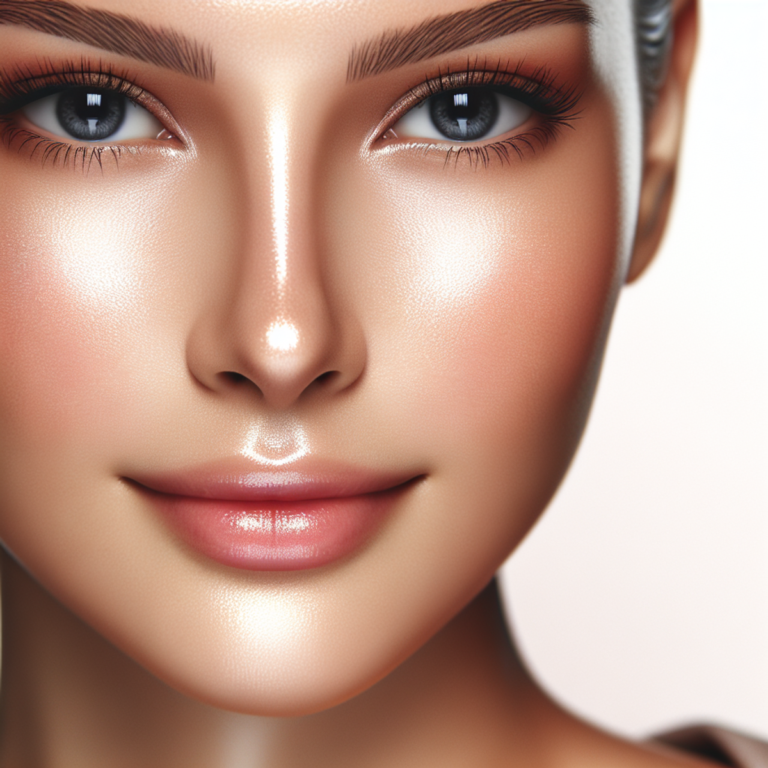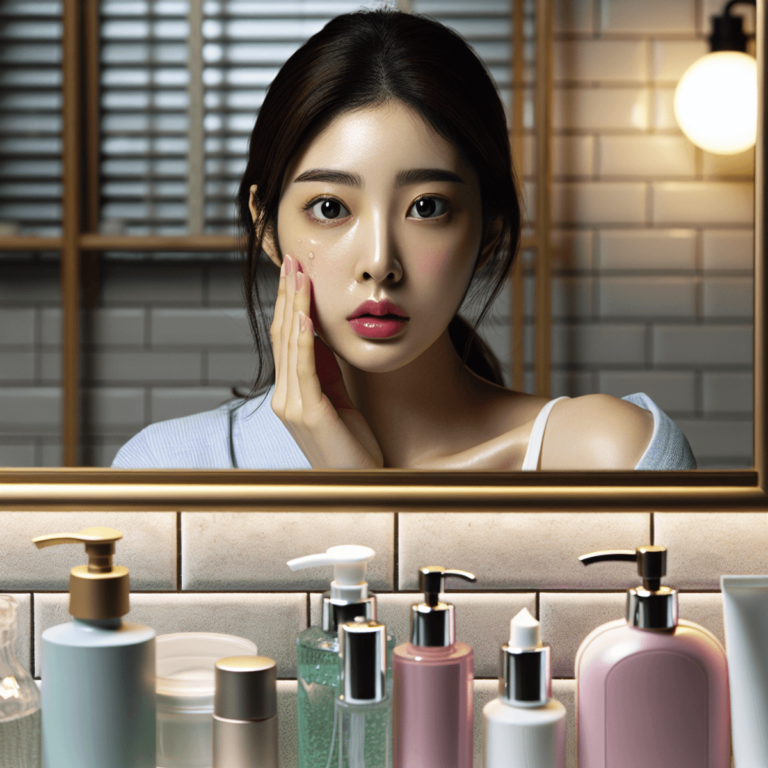Hairstylists Have Always Been Mental Health Caretakers. Now, They’re Being Trained for It

Introduction
Hairstylists have always been mental health caretakers, providing a unique space for clients to share their thoughts and feelings while getting a fresh look. The trust and confidentiality established in the salon environment allow hairstylists to not only create beautiful hairdos but also lend an empathetic ear for their clients’ personal struggles.
This article delves into the evolving role of hairstylists as mental health caretakers and the growing importance of training programs to equip them with skills for supporting their clients’ mental well-being. We will explore:
- The special bond between hairstylists and their clients
- The organizations offering comprehensive mental health training programs
- The significance of maintaining boundaries and self-care while nurturing others
Key organizations like PsychoHairapy, The Confess Project, and Lions Barber Collective are at the forefront of this movement, striving to empower hairstylists with the necessary tools to recognize and respond to signs of mental distress in their clients. As we journey through this exploration, we’ll uncover the vital role hairstylists play in promoting mental well-being and how they can continue to elevate their impact on their clients’ lives.
The Trusting Relationship Between Hairstylists and Their Clients
The bond between hairstylists and their clients is built on trust and confidentiality. When clients visit a salon, they often share personal stories and experiences with their hairstylists, creating a unique connection based on openness and trust. This trusting relationship allows hairstylists to not only create beautiful looks for their clients but also to provide a supportive environment where clients feel comfortable sharing their personal struggles.
Hairstylists often become confidants for their clients, lending a listening ear and offering emotional support during their salon visits. The salon environment fosters an atmosphere of trust, where clients feel safe expressing themselves while receiving hair care services. This special bond goes beyond the typical stylist-client interaction, allowing hairstylists to offer genuine empathy and understanding to their clients’ emotional needs.
The close proximity and intimate nature of the salon setting create a conducive space for open conversations, leading to the formation of deep connections between hairstylists and their clients. This relationship provides hairstylists with valuable insights into their clients’ lives, enabling them to offer not just hair care expertise but also emotional support when needed.
Spotting the Signs: How Hairstylists Can Identify Mental Health Issues
Hairstylists have a unique advantage when it comes to noticing signs of mental health issues in their clients. Their close physical proximity allows them to observe subtle changes in demeanor, mood, and behavior that may indicate underlying problems. By being aware of these signs, hairstylists can play a crucial role in supporting their clients’ well-being.
1. Unique Positioning for Observation
Hairstylists have a distinct advantage in observing subtle changes or behaviors due to their physical proximity with clients. This close interaction allows them to notice shifts in demeanor, mood, and behavior that may indicate underlying mental health issues.
2. Signs to Be Aware Of
There are several common signs of mental health issues that hairstylists should be aware of to better support their clients:
- Changes in Hairstyle Preferences: Sudden and drastic changes in hairstyle preferences, such as wanting to drastically change hair color or style frequently, can be indicative of emotional distress or a desire for change as a coping mechanism.
- Hygiene Neglect: A decline in personal hygiene, unkempt appearance, or neglect of regular grooming practices can signal underlying mental health struggles.
- Uncharacteristic Behavior: Observing uncharacteristic behavior, such as excessive fidgeting, avoiding eye contact, or sudden mood swings, may also indicate potential mental health challenges.
Observing these signs with empathy and understanding can help hairstylists provide a supportive environment for clients who may be grappling with mental health issues. By being attentive to these cues, hairstylists can offer not only exceptional hair care but also empathetic support for their clients’ overall well-being.
Key Organizations Providing Mental Health Training for Hairstylists
1. PsychoHairapy
PsychoHairapy offers a comprehensive training course aimed at equipping salon workers with the necessary skills to address mental health concerns in their clients. The training covers various aspects of mental health awareness and focuses on developing micro-counseling techniques specific to the salon environment. This organization recognizes the unique position of hairstylists as trusted confidants and aims to empower them with the tools to provide effective support.
The training program provided by PsychoHairapy spans over 12 hours and delves into understanding the signs of mental health issues that may manifest in clients during salon visits. It emphasizes the importance of creating a safe and supportive space within the salon, where clients feel comfortable expressing their concerns. The course also places significant emphasis on respecting boundaries and knowing when to refer clients to professional mental health services.
One of the key objectives of PsychoHairapy’s training is to use hairdressing as a gateway to initiate conversations about mental health. By recognizing that hairstylists often have a deep understanding of their clients’ personal lives, this organization seeks to leverage that bond to provide meaningful support. The micro-counseling techniques taught in this program are tailored specifically for brief interactions in the salon setting, allowing hairstylists to offer empathetic listening and guidance effectively.
PsychoHairapy’s approach acknowledges the intersection of hairdressing and mental health care, emphasizing the importance of holistic well-being for both hairstylists and clients. By integrating mental health awareness into the fabric of salon services, this organization contributes to reducing stigma and fostering a supportive environment for those experiencing mental health challenges.
This initiative not only benefits clients who may find it difficult to seek traditional mental health support but also empowers hairstylists with valuable skills that extend beyond their technical expertise. Through PsychoHairapy’s training, hairstylists can play a more active role in supporting their clients’ mental well-being while maintaining healthy professional boundaries.
By laying the foundation for meaningful conversations about mental health within the salon space, PsychoHairapy’s training equips hairstylists with practical tools to positively impact their clients’ lives.
2. The Confess Project
The Confess Project is revolutionizing the hairdressing industry by training barbers and hairstylists to become mental health advocates, particularly for marginalized communities. Understanding the significance of culturally relevant care, The Confess Project aims to address the critical gap in mental health support for individuals who struggle to find professionals who comprehend their unique experiences.
Training Barbers and Hairstylists as Mental Health Advocates
Through their comprehensive training courses, The Confess Project equips hairstylists with the necessary skills and knowledge to identify signs of mental distress in their clients and provide appropriate support. By specifically focusing on barbers and hairstylists, they target professionals who have an intimate connection and understanding of their community’s needs.
Creating Safe Spaces for Open Conversations
One of the pivotal initiatives undertaken by The Confess Project is their emphasis on establishing safe spaces for open conversations about mental health. By training hairstylists to be mental health advocates, they empower them to engage clients in discussions about their well-being, dismantling the barriers that often hinder individuals from seeking help.
“We’re not therapists; we’re just here to listen.” – The Confess Project
Bridging the Gap Between Communities and Resources
The Confess Project acknowledges that hairstylists are not meant to replace professional mental health services. Instead, they play a vital role in bridging the gap between communities and available resources. By providing culturally relevant care within the salon environment, hairstylists can significantly impact the lives of their clients and potentially connect them with appropriate support avenues.
“We don’t want you to be a therapist; we want you to be an advocate.” – The Confess Project
3. Lions Barber Collective
The Lions Barber Collective is another organization that provides specialized training to hairstylists in recognizing and responding to clients who may be experiencing depression or showing signs of suicidal ideation. This unique program aims to equip hairstylists with the skills and knowledge to support their clients’ mental health while also directing them to appropriate support avenues.
The Power of Conversation: ‘BarbersTalk’ Sessions
One of the innovative approaches used by the Lions Barber Collective is their ‘BarbersTalk’ sessions. These sessions create a safe space for open conversations about mental health between hairstylists and their clients. By fostering a supportive environment, hairstylists can engage with their clients on a deeper level, allowing them to share their concerns and emotions more freely. During these conversations, hairstylists are trained to actively listen and provide empathetic support.
Making a Difference Through Referrals
In addition to providing emotional support, the Lions Barber Collective also ensures that hairstylists are equipped with the tools to make appropriate referrals for help. They collaborate with mental health organizations and professionals to establish referral networks, ensuring that clients in need of further assistance can access the resources they require.
Redefining the Role of Hairstylists
The Lions Barber Collective recognizes that the role of hairstylists extends beyond creating beautiful hairstyles; it involves caring for the overall well-being of their clients. By addressing mental health concerns within the salon setting, they contribute to the broader goal of destigmatizing conversations around mental health.
Through their training programs, the Lions Barber Collective empowers hairstylists to become advocates for mental health awareness and support. By embracing this evolving role, hairstylists can make a significant impact on the lives of their clients, providing not only a fresh look but also a compassionate ear and a pathway to necessary resources.
The Hair-Mental Health Connection: Beyond Surface Level Care
The relationship between hair and mental health goes beyond looks. For many people, taking care of their hair regularly is a way to practice self-care and maintain good hygiene. This can be especially important for individuals dealing with mental health issues like depression, as engaging in personal grooming activities can give them a sense of control and achievement, which can positively impact their overall well-being.
How Hairstylists Can Support Mental Health
Hairstylists have a special role in supporting their clients’ mental health. Here are some ways they can do that:
- Encouraging self-care: Apart from being skilled at styling hair, hairstylists can also motivate their clients to establish consistent haircare routines as an act of self-care.
- Promoting positive body-image: By encouraging clients to embrace and appreciate their natural hair texture, color or style, hairstylists can help foster a healthy body image and boost self-confidence.
- Creating a safe space: Hairstylists can create an environment where clients feel comfortable opening up about any challenges they may be facing, without fear of judgment.
- Offering emotional support: Being empathetic listeners and providing emotional support to clients during their salon visits can make them feel valued and understood.
Through these efforts, hairstylists can play a significant role in establishing a positive connection between physical appearance and mental well-being for their clients.
Maintaining Boundaries and Self-Care While Nurturing Others
It’s important for hairstylists to establish healthy boundaries with clients when it comes to mental health support, ensuring they do not overstep their professional role into therapeutic counseling territory. Hairstylists should:
- Recognize their expertise limitations: Understand that they are not trained mental health professionals.
- Avoid formal therapy or counseling: Refrain from providing these services to clients.
- Offer listening ear and empathetic support: Provide a safe space for clients to share their concerns.
Practical tips for hairstylists to prioritize their own mental well-being while being empathetic listeners for clients’ concerns:
- Establish clear boundaries: Define the scope of support you are comfortable providing to clients regarding their mental health. Communicate these boundaries openly and respectfully.
- Practice active listening: Pay attention to your own emotional responses during client conversations, allowing yourself to empathize without internalizing their struggles.
- Seek support: Build a network of peers or mentors within the industry with whom you can share experiences and seek guidance when faced with challenging client situations.
- Self-care routines: Prioritize self-care activities outside of work hours, such as exercise, hobbies, or mindfulness practices, to recharge emotionally and mentally.
- Continual learning: Stay informed about mental health resources and support services in your community. This knowledge can empower you to guide clients toward professional help when needed.
By maintaining these boundaries and prioritizing self-care, hairstylists can effectively support their clients while safeguarding their own well-being.
Embracing the Evolving Role of Hairstylists as Mental Health Caretakers
Hairstylists have always played a crucial role in their clients’ lives, not only creating stunning hairdos but also providing a safe space for personal expression and emotional support. Now, with the growing recognition of the importance of mental health, hairstylists are stepping into an even more significant role as mental health caretakers. Their unique position allows them to contribute to their clients’ well-being in ways beyond just hairstyling.
How Hairstylists Can Support Mental Health
By gaining knowledge and training in mental health awareness, hairstylists can make a valuable contribution to their clients’ lives. With their enhanced understanding of mental health issues, they can:
- Provide a listening ear and offer support
- Help clients feel comfortable opening up about their emotions
- Recommend self-care practices that promote mental well-being
- Assist in identifying signs of distress or changes in behavior
- Connect clients to appropriate resources if needed
This evolving role highlights the profound impact that hairstylists can have on their clients’ overall well-being.
Breaking the Stigma: A Shared Responsibility
To further promote mental well-being in the beauty industry, it is essential for both hairstylists and clients to support initiatives that destigmatize conversations around self-care. By openly discussing mental health concerns and seeking professional help when needed, we can create a more supportive environment for everyone.
“Mental health is just as important as physical health. Don’t hesitate to reach out for help when you need it.” – Anonymous
Resources for Support
I encourage readers to learn more about organizations like PsychoHairapy, The Confess Project, and Lions Barber Collective mentioned in this article. These organizations are making significant strides in training hairstylists to provide mental health support and advocating for the intersection of hairdressing and mental health.
Playing Your Part: Hairstylists and Clients
Whether you are a hairstylist or a client, consider how you can contribute to this evolving role:
For Hairstylists:
- Continue seeking opportunities for training and education in mental health awareness
- Create a welcoming space where clients feel comfortable sharing their thoughts and concerns
- Stay updated on local resources available for mental health support
For Clients:
- Support your stylist’s efforts by engaging in open conversations about your mental well-being
- Be proactive in seeking self-care practices that benefit both your physical and mental health
- Advocate for inclusive salons that prioritize the well-being of both staff and clients
Together, let’s embrace the evolving role of hairstylists as mental health caretakers and create a beauty industry that not only focuses on outward appearance but also nurtures our inner selves.










